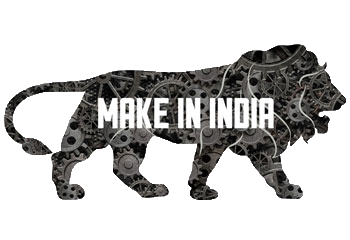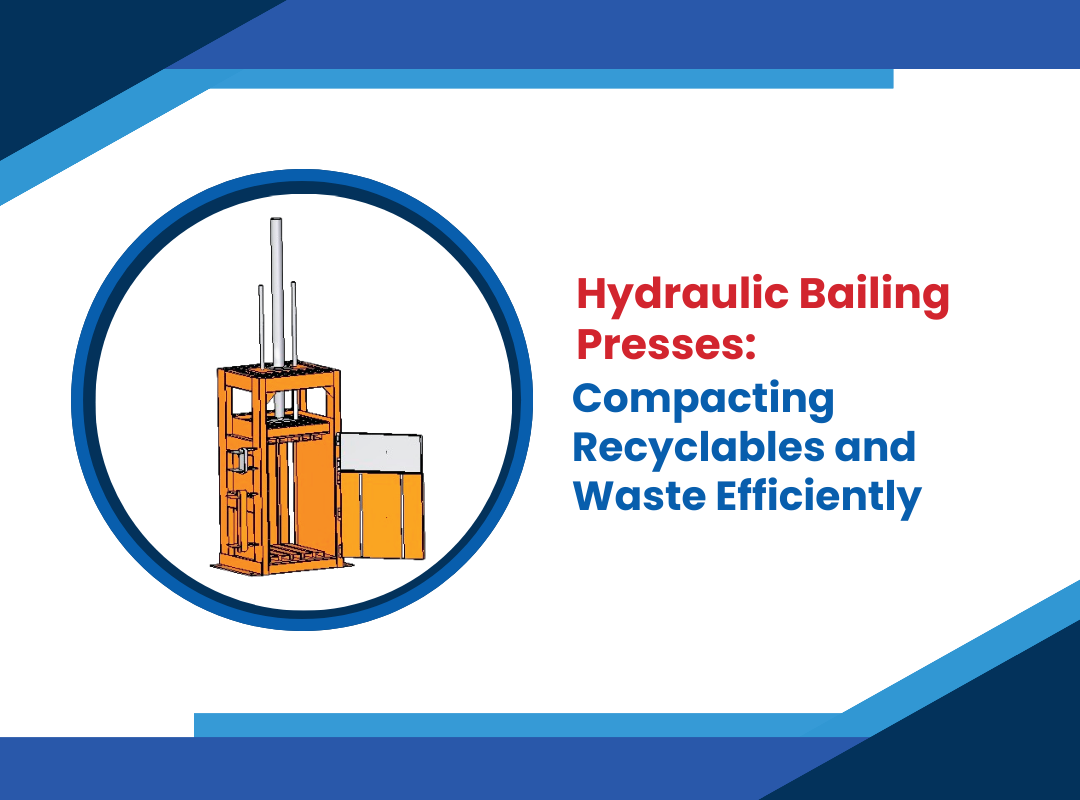Hydraulic baling presses are heavy-duty machines that compress materials into regular-shaped dense bales for easier handling, transportation, and storage. These powerful vertical balers utilize hydraulic cylinders in a chamber to generate up to 2000 tons of pressure, compacting loose items like paper, cardboard, plastic, aluminum cans, cotton, and more. The baled bundles can be stacked evenly onto pallets, swiftly moved with forklifts, and efficiently transported for recycling or disposal.
Hydraulic power allows balers to automate compression that is adjustable to varying content volumes. Computerized controls precisely set pressure for the most efficient bale weights possible. These versatile vertical baling presses bring tremendous efficiency to processing almost any facility’s waste and recyclables.
How do Hydraulic Bailers Work?
These vertically oriented machines utilize a chamber box with an open front to feed materials inside. The operator loads armfuls of loose paper, bottles, fabric scraps, or other waste until the chamber fills. A massive hydraulic piston powered by an electric pump then lowers from above with up to 2000 tons of available downward force. This compacts the contents into a tight, even block. Strapping bands then tighten around the bale to contain its shape for handling. Each bale weighs from 600 to 1500 pounds, depending on content density and compression ratio settings.
Configurable compression ratios allow adjustable bale density to be customized per input material. Light items like plastic may compress 8:1, while heavier paper bales at 4:1 ratios are typical. Controlled pressure optimizes baling output efficiency targeted to transport weights.
Once secured, chamber doors swing open to allow power conveyors, grapples, or forklifts to handle the block goods easily. The pressed bundles usually stack securely onto pallets for staging shipment to processing facilities or landfills.
What Hydraulic Press Balers Compact Well?
The extreme pressure hydraulic balers generate allows the compaction of almost any solid material imaginable. Typical press models work efficiently with the following:
●Cardboard
●Office paper
●Newspaper
●Magazines
●Books
●Retail boxes
●Plastics (PET, HDPE)
●Scrap metal
●Aluminum cans
●Cotton
●Textiles
●Barrels
●Wire
Unique baler configurations allow odd-shape compaction or high liquid content waste, which is not feasible in standard vertical chambers. Custom injection mold presses even shape select plastic recyclables into immediately usable raw goods.
Benefits of Hydraulic Baling Systems
Facilities dealing with high waste and recycling volumes quickly gain advantages using hydraulic baling presses over traditional loose material handling.
Benefits include:
- Reduced Transport Costs: Compressed bales weigh much less per item for cheaper shipping fees.
- Decreased Trucking Runs: More compacted material loads per pickup or less frequent hauls are needed.
- Better Use of Space: Stacked blocks assemble tidily onto pallets, efficiently storing long-term. Safe
- Handling: Secured bundles prevent loose debris spill messes during transport.
- Minimal Labor: Automated balers allow single operators rather than manual teams.
- Flooding Prevention: Giant hydraulic pumps easily crush even the bulkiest waste objects that tend to clog compactors. Cleaner
- Facilities: Neat bundles cut loose paper and scraps floating in plants.
- Faster Processing: Materials already compressed speed receiving throughput at destinations.
- Consistent Quality: Even stacked goods enable standardized industry pricing metrics over loose waste.
Where do Hydraulic Balers Offer the Most Value?
Today, every industry focuses on sustainability through recycling programs and waste diversion from landfill initiatives. Heavy-duty baling equipment can benefit any operation handling tons of reusable materials or trash monthly.
Distribution Centers
Central regional warehouses for large retailers process insane volumes of discarded packaging from replenished outlet stores weekly. Hydraulic baling condenses mountains of corrugated boxes and plastic wrap into organized bundles and moves them out efficiently. Investing in manual labor teams saves tremendously in the long term.
Food Processing Plants
Large food factories that produce sauces, canned goods, and packaged products jettison tons of waste daily. Things like fruit peels after juicing or unused trimmings accumulate rapidly with high output volumes. Hydraulic balers neatly contain considerable mess potential from long-term sloppy, loose organic leftovers.
Paper and Printing Operations
From shredded corporate documents to excess booklets, catalogs, and media print overruns, document management and publishing houses overflow with recyclable paper. Vertical balers condense huge volumes into transportable cubes for readily secure resale to mills.
Retailers and Construction
Home goods retailers and hardware outlets that cycle high inventory volumes generate piles of discarded wood, metal, and cardboard in receiving areas. Building contractors also produce mountains of waste lumber cutoffs on job sites. Hydraulic balers crunch tremendous refuse down to compact transportable bundles.
Bottle and Can Recycling
Centers Many grocery chains and recycling companies operate dedicated bottle return facilities. Customers constantly redeem high-quantity containers, generating substantial handling needs. Specific hydraulic presses for aluminum cans or plastic bottles make consolidating huge intake volumes much more efficient.
Municipal Recycling
Local community recycling plants that take residential and commercial business waste depend on proficient sorting and containment. Hydraulic-powered balers speedily process inbound construction debris, household recyclables, and grass clippings from municipal collection routes. Communities have reused or resold income to gain from clean compressed bundles, too.
Conclusion
Any private or public enterprise handling loads of waste or recyclables can benefit from hydraulic baling machinery. These high-powered vertical presses utilize extreme pressure to condense almost any material into transportable, storable cubes at rapid speeds. Consider adding hydraulic baling capabilities to your facility for a fast and profitable way to contain expansive waste handling needs in the future.


